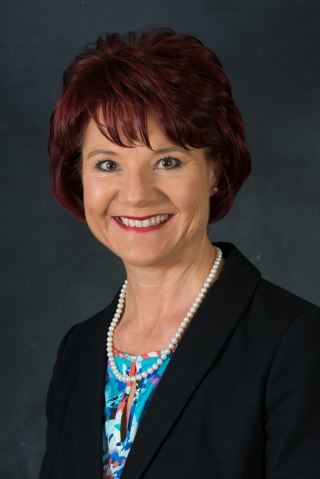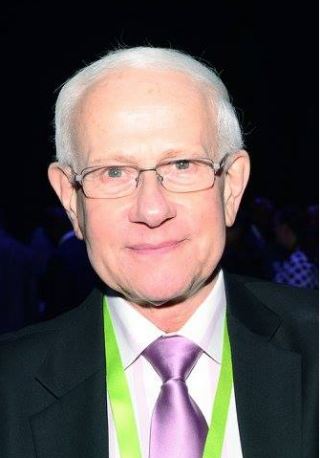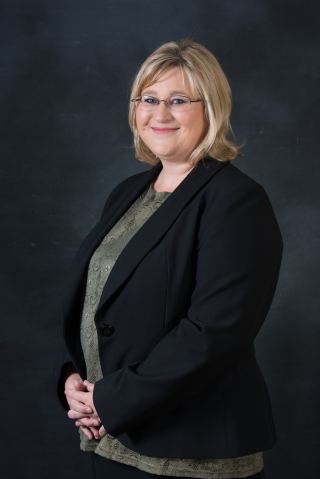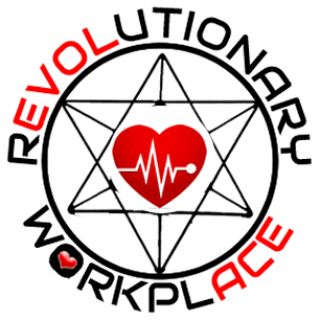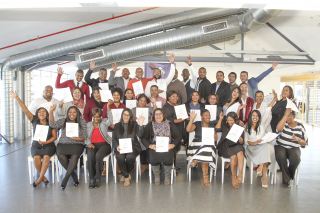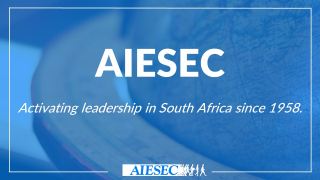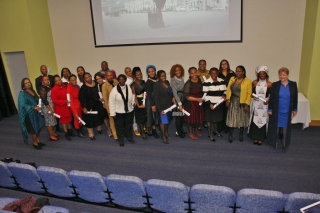Business success is a journey - Leadership is the compass
By Annelize van Rensburg, director at Signium Africa www.signium.co.za
Leadership identification and development continues to be one of the most pressing business issues keeping executives awake at night. Every business has the same aim: success and sustainability. Established routes to this destination include competitive advantage, new technology to improve productivity and product innovation, and cost reduction to secure pricing efficiencies. Without superior leaders, none of this is possible.Companies progress through a life cycle from seed to start-up, growth to established, expansion to mature, and then to decline and exit, or renewal through invention.
In the same way, leadership identification and development progresses through a cycle.Leadership consulting offers the most suitable answers to these current dilemmas by helping leaders to align their people strategy with their business strategy; providing scientific and objective information through assessments; designing development interventions to help leaders function at their highest potential; and then embarking on acquiring and retaining leadership talent when talent needs to be acquired and not ‘home-grown’.In order to remain competitive and relevant, business leaders must start by aligning their talent strategy with their business strategy. This is critical because talent strategies translate the company’s vision and values into expected employee behaviour and define how they will contribute towards the company’s success. Misalignment is likely to result in strategic goals not being met.
It is a myth that only large organisations need a talent strategy. Smaller organisations are more at risk because there are fewer possible successors in unique roles.In addition, not only is it important to understand the current talent pool within the company but also future needs. This is done by analysing the readiness of the current leaders to meet the future business needs of the organisation and provides a realistic pipeline of leadership talent.Plan your talent for five years from now and not only for today; look to the future of the company. Use competency assessments to test employees’ long-term strategic thinking ability, innovation, as well as their flexibility in decision-making, because these are critical skills for building a successful business.Assessments are an objective and scientific way of gathering insight into a person’s current functioning and future potential. They provide an understanding of the impact of the person’s behaviour on others in the workplace.
If the assessment tools used are valid, reliable and culture-fair, and if assessments are professionally conducted, the insights are extremely useful.Most leaders are built, not born. Top performers take responsibility for developing their knowledge, skills and competencies. There are many ways of doing this, including leadership development programmes, on-the-job training and executive coaching, which is a powerful way to provide support to leaders and help them navigate current and future challenges.
Executive coaching can help turn good leaders into great ones.If leaders within the company are not yet ready or fully developed, leadership needs to be acquired, preferably with the assistance of a reputable headhunter or talent-search professional for those executive level positions.That suitable candidates can be found from outside the company’s industry is beyond doubt; they may even have an advantage over industry insiders.
Their advantage is the ability to ask embarrassing questions while taking nothing for granted. Successful cross-industry movers acknowledge that their first job is to listen, then listen some more. The reinvigorated executive team around the new leader stops making assumptions and starts to question old habits. They may also acknowledge that new technology, new legislation and the emergence of a new consumer are having major impact on their sector. There are no guarantees of success, however. Outsiders don’t always work miracles.Pros are accompanied by cons.
The ‘safe’ industry insider does not have to go through a period of intensive familiarisation with a new industry and its dynamics. He or she can hit the ground running. In contrast, the outsider faces a steep learning curve. Suddenly, evolution seems safer than revolution. Continuity seems a better bet than a thorough shake-up.Stay open-minded.When recruiting leaders, don’t ignore the importance of diversity to balance your team. Remember generation, gender, race, religion and so forth. Businesses with diverse workforces will have a strategic advantage in the marketplace.It is difficult to attract executive talent. It is easy to lose executive talent.Offering opportunities to grow and giving leaders room to express themselves remain key to executive retention.
This is according to Michelle Moss, director of Leadership Assessment Consulting at Signium Africa.There are also other ways business leaders can meet their employees’ needs and foster employee satisfaction to support retention.Give them the permission to dream up new ideas and different ways of doing things. Of course, the boss still needs to keep a bird’s eye view of what is going on and provide advice and guidance whenever necessary to ensure ultimate success.Make work meaningful because most employees want to identify with the vision, the mission and the goals of the company they work for. As business leader, make sure that these are communicated often and that all leaders walk the talk.
Pay your employees what they are worth. Reward and recognition is still critically important in the workplace. A fair trade is important to most people.Business success is a journey, leadership is the compass. Leaders should develop talent strategies for the right reasons, and not just to tick a compliance box. It is worthwhile remembering that we are dealing with individuals who should be esteemed in the workplace.
A leader is a dealer in hope – Napoleon Bonaparte.
* Annelize van Rensburg is a founder and director of Signium Africa, previously Talent Africa, a leading provider of integrated talent solutions and leadership development in sub-Saharan Africa, e-mail: This email address is being protected from spambots. You need JavaScript enabled to view it.
What to do when integrity may get you fired?
What to do when … Integrity may get you fired
By Auguste Coetzer*, Director at Signium Africa (www.signium.co.za)
Rising levels of perceived corruption have sharpened the ethical challenge for those in responsible positions. When the spoils might run into billions, it seems you can be fired for doing the right thing and rewarded for doing what you know to be wrong. How do you stay on the side of the angels, stay in your job … and stay out of jail? The issue receives growing attention. The PwC study, Strategy & Recent CEO Success notes an international rise in ethical lapses and subsequent dismissals at senior level. It attributes the uptick to public outrage at corporate scandals, social media as a platform for experience-sharing and a 24/7 news cycle that makes any cover-up highly problematic.
The topic is also examined by author Ira Chaleef in his book, Intelligent Disobedience: Doing Right When What You’re Told to Do Is Wrong. Intelligent Disobedience indicates the impossibility of being only slightly dirty. You might object to an unethical practice and go along reluctantly, but your ethical lapse can still land you in jail. So, do you simply resign in protest and walk away? Sometimes, this is the only thing to do. You might then go public and become a whistle-blower – with huge personal consequences if you are labelled a ‘trouble-maker’. This is not always a wise move, and is often not necessary.
In a small market like South Africa, industry peers, professionals and specialists in executive recruitment are usually aware of the organisations where leadership is flawed and irregularities are apt to occur. Quitting an operation like this – or being fired for taking an ethical stand – holds no stigma. Your career will often resume an upward trajectory after an initial bump or two. In many cases, however, the issues are not nearly so clear cut. The organisation might decide on suspension rather than dismissal. You can then be pressured to go quietly. In South Africa, there have been cases where senior personnel have been suspended for years, leaving them and their careers in limbo. With this in mind, it may be advisable to avoid an outright rift in the event of unethical demands. Intelligent Disobedience suggests four techniques: Obvious shock. By your tone and facial expression indicate the request has taken you aback. Don’t give an outright refusal (yet). Your demeanour may be enough to prompt a rethink.
The boss or board may backtrack and subsequently abandon the idea without losing face. Seek clarification. Ask ‘Did I understand you correctly? Do you really want me to do this?’ You might even ask for the instruction to be put in writing. (For your own part, never sign any documents sanctioning unethical practices. This puts you in the cross-hairs while guilty parties stay camoflaged.) Suggest a better alternative. There may be a chance other, less dubious, steps could be taken and deliver a positive outcome. Emphasise self-preservation. Use expressions that enable a superior to retreat. Say, ‘This could make us look bad if this comes’ rather than ‘You will look bad.’ Point out that in the social media era, dirty secrets always come out eventually and this will not look good for ‘us’. But, at the end of the day, remember there are worse things than quitting a job or being fired from it … for instance, going to prison.
*Auguste Coetzer is a Director of Signium Africa (previously Talent Africa), a leading South African-based executive search and talent management company servicing sub-Saharan Africa.
The best defence against corporate failure...Individual Integrity
The best defence against corporate failure … Individual integrity By Auguste Coetzer* and J. Michael Judin**
Integrity has no expiry date. You’ve either got it or you haven’t. An honest, diligent company director does not become a crook on the make the moment some arbitrary term limit has been exceeded.
This states the obvious. However, current pressures in the realm of corporate governance and audit practice suggest now’s a good time to remind ourselves of basic principles in the conduct of business and the behaviour of directors. Inevitably, the implosion of the Steinhoff retail group and revelations about the role of Gupta-linked companies in state capture have raised questions about the ability of current regulation – specifically the King IV guidelines – to combat wrongdoing and sharp practice. The focus has fallen on the tenure of directors and audit firms. Long-term appointments supposedly contribute to cosy relationships and an ‘old boys’ club mentality’, allegedly compromising professional scepticism and rigorous scrutiny of corporate actions and accounts.
The supposed solution is frequent rotation of independent non-executive directors and audit firms. Pressure appears to be growing to get old faces out and new faces in. Momentum is such that it is almost certain mandatory audit firm rotation (MAFR) will be legislated locally while the definition of independence may be revisited, perhaps resulting in the automatic lapsing of independent status after nine years (on the British model). Currently, under section 92 of the Companies Act, audit partner rotation is mandatory in South Africa, not audit firm rotation, while King IV allows boards to exercise their judgment when an independent non-executive director appears to offend any of the criteria for independence, as long as a board can justify its view that independence of judgment and action is unimpaired. This may change as those calling for further legislation punt the merits of regular rotation. In effect, the proponents of rotation play up the benefits of a shake-up while playing down the value of experience. The danger is that institutional memory and industry knowledge will be sacrificed with no assurance new perspectives will improve company performance or corporate governance. Past errors might be repeated, incurring unnecessary costs while endangering competitive advantage and jobs.
Experience has traditionally been regarded as a key component of wisdom and a precondition for forward planning. Confucius tells us ‘By three methods we may learn wisdom: First, by reflection, which is noblest; Second, by imitation, which is easiest; and Third, by experience, which is the bitterest’. Of course, experience at the highest level – in the boardroom – is especially hard won. It should be noted that experience is still being gathered with MAFR. This state of flux has not impeded the global trend to mandatory rotation.
The EU has introduced MAFR, with a 10-year cap on client-auditor tenure. Brazil has a five-year cap, as does China (for banks and SOEs) while the UK prefers a 10-year limit. Yet a growing body of research suggests presumed benefits cannot be substantiated and the risks of auditing failure are higher in the early years of a relationship; undercutting arguments about complacency setting in over time. The efficacy of rotation as a defence against fraud is also open to question. MAFR was in place in Italy years before the Parmalat scandal, but was no defence against frauds so massive they rocked the country. Sometimes doubt sets in after prolonged trial. For example, Spain embraced the concept for several years, then dropped it. Research continues and real-life experience is still being gathered. However, arguments in favour of a wait-and-see approach appear to have lost ground to growing agitation for regular rotation of audit firms and independent directors. The challenge for proponents and sceptics alike is how to make the best of these changes when they come.
Clearly, the known risks should be addressed; for instance, the danger that rotation will deplete industry knowledge and institutional memory. One suggestion here is that a phasing-in period be introduced. The established audit firm (or established directors) could remain on board while replacements learn the ropes and draw on the experience of their immediate predecessors. With corporate change on the near-term horizon, it is also appropriate to focus on challenges specific to South Africa; such as the need to strengthen boardroom diversity. Here, the phasing-in principle might be extended to include a mentorship period for newly appointed young directors. While welcoming a new generation of directors, it makes sense to confront a generational issue – low levels of digital literacy on ageing boards of directors. A McKinsey Quarterly article of 2016 noted that “only 116 directors on the boards of the Global 300 are digital directors”. Furthermore, two McKinsey surveys report that only 17% of directors say their boards are sponsoring digital initiatives while only 16% say they fully understand how industry dynamics are changing in the face of digital attack. Yet one in three directors believe digital disruptors will overturn their business models in the next five years.
In response, some US firms are setting up technology committees while hiring chief digital officers and appointing digital directors. South African companies face similar challenges, though board composition may not yet reflect their willingness to cross the digital divide. The geek with the knowledge and insight to save a traditional organisation from digital disaster is probably under-30 with a ring in his (or her) nose, and you don’t see many directors answering to that description in South African boardrooms. In all these rotational, mentorship, diversity and digital scenarios, we should acknowledge that a key issue is talent availability. South Africa’s skills pool is limited. The number of experienced, proven and respected individuals with sound directorial credentials is finite. We can legislate change, but we then have to find the people to make the changes work. Clearly, integrity and intellectual honesty are non-negotiable. They are the critical requirements of all contributors to company performance, whether newcomers to the boardroom or old hands A shake-up that weakens corporate governance must be avoided at all costs. Ethical leaders with strong values are the best guarantee that change is a change for the better.
*Auguste Coetzer is a Director of Signium Africa (previously Talent Africa), a leading South African-based executive search and talent management company servicing sub-Saharan Africa. www.signium.co.za
**J. Michael Judin is a partner in the Johannesburg law firm of Judin Combrinck Inc. www.elawnet.co.za Though he writes here in his personal capacity, he is on the King Committee, was part the task team that wrote King IV™ and chaired the subcommittee on the chapter dealing with negotiation, mediation and arbitration as contained in King III. He is a non-executive director of, and legal adviser to, the American Chamber of Commerce in South Africa and co-chairman of the Corporate Governance International Development Subcommittee of the American Bar Association’s business law section.
Break the corporate politics taboo and head for the top
By Michelle Moss*, Director at Signium Africa - www.signium.co.za
Politics was once a dirty word in business. You did not play politics to get ahead. It was just not done. Rubbish! Corporate politics have always been played.
The challenge is to play without deceit and duplicity while boosting the business. Of course, smart political players boost themselves as well.Currently, a corporate politics rethink is underway overseas. International literature confirms it.
A similar reassessment is underway in South Africa.Local indicators include executive search feedback to job candidates that their ‘political’ skills need attention and growing demand in the executive coaching arena for assistance with this aspect of personal development.Stalled careers are a key driver.Long hours and impressive gains should have resulted in career recognition but haven’t.
The individual then asks, ‘What more can I do?’The answer is ‘Learn to play the game’, and that game is corporate politics.
Many newcomers to the game are shamefaced about it.They confuse politics with ‘brown-nosing’ and manipulation.
They believe good people do not network for self-advantage.However, a good executive coach will point out that access, visibility and credibility are essential for personal and corporate success.Good ideas are useless unless they’re shared with decision-makers.
ccess to senior ranks is therefore essential. Once access is gained, the ambitious manager has to be seen as a credible performer making a visible difference.Credibility is rarely an issue. The go-getter usually has the qualifications and experience, has put in the time and achieved success.The challenge relates to access and visibility, but first mindsets must change.This is no problem for those who are aware their career has stalled and change is overdue.
Good coaches also point out that personal values are not compromised by networking and relationship-building. Behaviour might change, ethics remain intact.Behavioural change helps put a name to developments that were previously anonymous.Bosses are swamped by data. Often, they don’t have time to ask ‘who worked on this project?’ or ‘who led that team?
By changing behaviour and creating favourable awareness, players make it easier for superiors to remember a face and name.Once the mindset has been adjusted, it is necessary to identify decision-makers and influencers; external as well as internal. Impress some clients or suppliers and the word may go all the way to the top of your own organisation.Once identities have been established, relationships can be developed. Often, this is through participation in various initiatives or at certain social occasions.Take an interest. Get on to the invitation list.This can be difficult for introverts. They need to become more outgoing. Extroverts face a different challenge. They can come across as pushy and egotistical.One way forward is to tell a story that subtly conveys the contribution of the ambitious manager without bombast. There may be a humorous pay-off line, but the story-teller is positioned as a key actor.These techniques involve no play-acting. Superiors are not being deceived.
They are being alerted to interesting developments and the impact of new role-players.Advancement from this base can be impressive. Stalled careers may go into overdrive.Stellar success like this is not built on a lie. You have to be the real deal to make real progress. Play the political game to win recognition. But remember; real winners always deliver results.
*Michelle Moss is a Director at Signium Africa (previously Talent Africa), a leading South African-based executive search and talent management company servicing sub-Saharan Africa. www.signium.co.za
Lifemasters launches New #FuturueFit REVOLUTIONARY WORKPLACE Business Growth Advisory & Entrepreneur Resilience Coaching System
The Profit And #Futurefit Mindset Optimisation System, REVOLUTIONARY WORKPLACE CLEARx, Helps Entrepreneurs To 2x-4x Value, Impacts & Results.
South African REVOLUTIONARY WORKPLACE Leadership Development organisation, Life Masters, headed by expert author, SWIFT Mindset coach, and keynote speaker, Tony Dovale, launched the most innovative and effective Entrepreneurship & Business Development Accelerator program called REVOLUTIONARY WORKPLACE CLEARx PROFITS.
With Life Masters’ head offices in Johannesburg, South Africa, the Consciously Constructive REVOLUTIONARY WORKPLACE CLEARx PROFIT Workshops, and coaching, will create an interactive and collaborative-setting where entrepreneurs, leaders, and teams, will have the opportunity to gain immense wisdom, insights, and high impact tools, to unleash workplace potential, to transform (2x-4x) their staff’s Growth Mindsets, increase engagement, discover the psychology of Leadership performance leadership, organisational culture, profits, and happiness at work levels.
About REVOLUTIONARY WORKPLACE CLEARx PROFITS System
Tony Dovale, founder of Life Masters says: “The REVOLUTIONARY WORKPLACE CLEARx PROFIT System will rapidly equip and enable entrepreneurs, leaders, and teams, to harness their most valuable assets… Mindsets, Psychological Capital and Potential, and to fiercely focus their energy and efforts, into the 6 CORE proven components that create sustainable high performance workplaces; people, teams, leadership and culture.
Leveraging the power of Positive Business, Tribal Leadership Principles, Soul Meaning Scale, Team Building Mastery and GO Mindsets, the new Consciously Constructive CLEARx philosophy, framework and process, challenges the way we engage, lead, connect, communicate, develop, and collaborate with the world around us”.
The REVOLUTIONARY WORKPLACE CLEARx High Performance System is based upon extensive research, testing and consolidation (40+ years), of leading-edge and highly effective approaches to rapidly developing people, teams, leadership and culture, in an ever-changing context.
The Consciously Constructive REVOLUTIONARY WORKPLACE Philosophy, framework and process transforms meaning, money, and GO Mindset mastery, beyond motivation, to rapidly develop #FutureFit people, unleash potential, unite and fiercely focus efforts, and create outstanding results.
For more information on Consciously Constructive REVOLUTIONARY WORKPLACE talks, workshops, coaching, assessments, consulting.
For your free HPO Talk or High Performance Diagnostic – register at www.revolutionaryworkplace.com
Follow Life Masters and Tony Dovale on Facebook and on Twitter.
More about Life Masters: Life Masters, founded by CEO, Tony Dovale, exists to empower and develop #FutureFit “bullet-proof” high performance Mindset entrepreneurs, teams and leaders, that positively transform the workplace for the greater good of PEOPLE, PLANET AND PROFITS.
Tony Dovale and his certified Consciously Constructive REVOLUTIONARY WORKPLACE facilitators / coaches train, support, coach, mentor and equip leaders and entrepreneurs, as they grow their businesses SWIFTLY.
Clients have already achieved growth factors of between 2x to 4x annual results with LifeMasters.co.za.
Please visit www.lifemasters.co.za.
For media-related queries, please contact: Tony Dovale CEO of Life Masters.co.za
Mobile: 083-447-6300
Email: This email address is being protected from spambots. You need JavaScript enabled to view it.
Mindful Revolution announced as a 2017 Future of HR Awards Finalist
The 3rd annual Future of HR Awards has announced its 2017 awards category finalists - and Mindful Revolution has been designated a finalist for the Best Health & Wellbeing Strategy Award. The Future of HR, in association with Careers24, is unique in recognising and promoting the leading lights in the Human Capital industry - every year, entrants raise the bar higher.
The awards, and the accompanying Future of HR Summit, will once again draw together a host of Human Capital leaders from CEO’s to those pioneering HR technology, over two days of shared knowledge and recognition.
This year’s Future of HR Award winners will be announced on 20 July 2017 at the highly anticipated awards ceremony to be held at the Birchwood Hotel, Johannesburg.
Sponsors on board include Arcelor Mittal, Alexander Forbes, Nissan, Sun International, Schneider-Electric and CEB for the Summit, and Public Sector Manager and Thomas International for the Awards. Association partners include, South African Institute of Management (SAIM), Employee Assistance Professionals Association of SA (EAPA-SA) and the South African Organisational Development Network (SAODN).
Becoming a finalist is considered an achievement in itself, as the entries are judged by a community of influential judges from within the HR sphere.
Click here to see this year’s notable judges and full list of finalists.
About us:
Mindful Revolution is a human-focused company offering mindfulness training in the workplace. Mindfulness is the intrinsic capacity to approach all aspects of life with awareness. In a fast-paced world, people have lost their innate capacity to approach life with mindfulness. Through our science based experiential training, participants will be reminded to adopt mindfulness as a way of being. We aim to increase attention and focus, enhance creativity, encourage innovative thinking and teach emotionally intelligent leadership skills.
To connect with Mindful Revolution, please contact Clinton Stebbing | This email address is being protected from spambots. You need JavaScript enabled to view it. | 076 657 4139
Inaugural Contact Centre / Business Process Outsourcing Leadership Graduation Ceremony in Cape Town
Inaugural Contact Centre / Business Process Outsourcing Leadership Graduation Ceremony in Cape Town
On 23rd May 2017 the inaugural TULA graduation ceremony for young leaders in the Business Process Outsourcing (BPO)/ Contact Centre sector was held in Cape Town. 59 students from 4 companies have attended the TULA leadership course over the past 18 months.
TULA Founder and CEO, Gareth Pritchard, explained the relevance of the new leadership programme: “TULA works with OnTrac, an Indian based training and consulting company. The programme aims to give students the tools to develop their leadership skills and improve their respective company’s operational efficiency. More than 60,000 students worldwide have participated in the programme. The programme is unique in that it is able to measure the impact of learning activities against each company’s individual business goals.”
Executive Mayor Patricia de Lille commended the students who had taken part in the programme: “I would like to congratulate each and every student who successfully completed their course and graduated in the first graduation ceremony of the TULA leadership programme. The BPO / Contact Centre sector is contributing significantly to the development of our economy, with over 4,500 new jobs created in the last year alone. This growth will only continue if we ensure that our leaders are equipped with globally recognised skills.”
Lufthansa InTouch was one of the participating companies. Their Site Operations Manager, Ian Ohlson commented: “Not only does this program unleash the individual’s leadership potential, it also works towards achieving your organisational goals by allowing employees to take control and influence the bottom-line through individual and group work.”
Capfin Business Operations Manager, Jacques Loubser agreed: “We see such a positive shift in team and individual performance, purely because the learnings imparted during the leadership programme speak to the cornerstones that make up a successful contact centre and in turn our people are able to positively influence the customer value proposition.”
Leading global customer experience and business process outsourcing company, Webhelp, who employs over four thousand people in South Africa, also participated in the programme. Chief operating officer for South Africa, Simon Garabette, commented: “The quality and expertise of our people are extremely important to Webhelp. Engaging in training of this nature highlights our commitment to developing our people, which benefits them and our clients.”
EXL Service is a global provider of decision analytics, operations management, outsourcing, business transformation and IT services. Their country head, Pratap Rao, welcomed the invitation to participate in the programme: “As we continue to grow our teams and to solidify our presence in the industry, the TULA program played a huge role in not just helping the participants understand the importance of building winning teams, but how to build them as well. I can see a program like TULA becoming integral to growth in this industry in any geography.
TULA has also formed a partnership with the Zoe Incubation Centre in Delft to help establish a skills pipeline in Delft to enable access for township communities into the contact centre sector. 7 of Zoe’s students will also be present at the graduation ceremony. The graduation ceremony was held on 23rd May at 14:00 in Cape Town’s entrepreneurial hub, Workshop17, at the V & A Waterfront where TULA has its offices.
TULA provides consulting services and training in the area of Operations Management for the Contact Centre / BPO sector. CEO and founder is Gareth Pritchard email: This email address is being protected from spambots. You need JavaScript enabled to view it.; cell: 0837030822; website www.tulasa.co.za; Linkedin: https://www.linkedin.com/in/garethmpritchard Twitter @BPESACT
Inaugural Contact Centre / Business Process Outsourcing Leadership Graduation Ceremony in Cape Town
On 23rd May 2017 the inaugural TULA graduation ceremony for young leaders in the Business Process Outsourcing (BPO)/ Contact Centre sector will take place in Cape Town.
The ceremony will be attended by Cape Town Executive Mayor Patricia de Lille who will also award the graduation certificates to the students. 59 students from 4 companies have attended the TULA leadership course over the past 18 months. TULA Founder and CEO, Gareth Pritchard, explained the relevance of the new leadership programme: “TULA works with OnTrac , an Indian based training and consulting company. The programme aims to give students the tools to develop their leadership skills and improve their respective company’s operational efficiency. More than 60,000 students worldwide have participated in the programme. The programme is unique in that it is able to measure the impact of learning activities against each company’s individual business goals.”
Executive Mayor Patricia de Lille commended the students who had taken part in the programme: “I would like to congratulate each and every student who successfully completed their course and graduated in the first graduation ceremony of the TULA leadership programme. The BPO / Contact Centre sector is contributing significantly to the development of our economy, with over 4,500 new jobs created in the last year alone. This growth will only continue if we ensure that our leaders are equipped with globally recognised skills.”
Lufthansa InTouch was one of the participating companies. Their Site Operations Manager, Ian Ohlson commented: “Not only does this program unleash the individual’s leadership potential, it also works towards achieving your organisational goals by allowing employees to take control and influence the bottom-line through individual and group work.”
Capfin Business Operations Manager, Jacques Loubser agreed: “We see such a positive shift in team and individual performance, purely because the learnings imparted during the leadership programme speak to the cornerstones that make up a successful contact centre and in turn our people are able to positively influence the customer value proposition.”
Leading global customer experience and business process outsourcing company, Webhelp, who employs over four thousand people in South Africa, also participated in the programme. Chief operating officer for South Africa, Simon Garabette, commented: “The quality and expertise of our people are extremely important to Webhelp. Our people are our biggest asset and it is crucial for us to be able to offer our best people rewarding and meaningful careers. Engaging in training of this nature highlights our commitment to developing our people, which benefits them and our clients through the enhanced levels of customer experience we can deliver to their customers.”
EXL Service is a global provider of decision analytics, operations management, outsourcing, business transformation and IT services. Their country head, Pratap Rao, welcomed the invitation to participate in the programme: “As we continue to grow our teams and to solidify our presence in the industry, the TULA program played a huge role in not just helping the participants understand the importance of building winning teams, but how to build them as well. I can see a program like TULA becoming integral to growth in this industry in any geography.
TULA has also formed a partnership with the Zoe Incubation Centre in Delft to help establish a skills pipeline in Delft to enable access for township communities into the contact centre sector. 7 of Zoe’s students will also be present at the graduation ceremony.
The graduation ceremony will be held on 23rd May at 14:00 in Cape Town’s entrepreneurial hub, Workshop17, at the V & A Waterfront where TULA has its offices.
TULA provides consulting services and training in the area of Operations Management for the Contact Centre / BPO sector. CEO and founder is Gareth Pritchard
email: This email address is being protected from spambots. You need JavaScript enabled to view it.; cell: 0837030822; website www.tulasa.co.za; Linkedin: https://www.linkedin.com/in/garethmpritchard Twitter @BPESACT
International experiences for South African youth
AIESEC in South Africa is currently preparing for their peak period of sending young individuals on international exchanges for community development or professional experiences. Through these cross-cultural experiences young people between 18 and 30 years can explore other cultures and develop their leadership skills to create a more harmonious future for all.
For the past two years, AIESEC in South Africa worked with Tata Consultancy Services to send 61 individuals for professional training to India, with the chance of getting employed full time upon their return to South Africa.
However, this is only one of many opportunities around the world to South African youth; we offer both 6 - 12 week projects to impact communities abroad as well as professional internship opportunities, starting from a duration of three months. With the holiday and graduation period for students coming up, this can be an opportunity to spend holidays in a meaningful way or jump-start their career abroad.
You can learn more about our opportunities on our website aiesec.org.za and browse our projects in our Opportunity Portal opportunities.aiesec.org. Sign up today to join our mission to end conflict worldwide and bring about global peace.
AIESEC is the world’s largest youth-led organization creating opportunities for young people to explore and develop their leadership potential. With offices in more than 125 countries and territories, AIESEC is a non-political, independent, not-for-profit organization run by students and recent graduates of institutions of higher education.
First register of board ready women directors launched in SA
The largest international businesswomen’s organisation - BPW International – has launched South Africa’s first register of board ready women.
Keynote speaker, Mr Mohale Ralebitso, CEO of the Black Business Council, discussed the long slow haul for gender diversity on boards and the actions that the BBC are taking to ensure a swift progression to change. In addition, Mohale outlined the BBC’s stance on the recent JSE policy requiring listed companies to disclose the female representation on their boards and drive transformation at an executive management level.
We need to capitalise on every talent available to ensure a South Africa and subsequently an African economy that thrives, and not simply those of a connected few.
South Africa’s future women directors have organised under the “Get on Board” banner to passionately drive the transformation of boards. These talented women are operating at a high level in companies across industry sectors right now. The first 42 women on our Register all fulfil stringent criteria for corporate governance and legislation and are well trained through the BPW “Women on Boards” Director Development programme.
It’s time we provide opportunities to more women than just the “high flyers” who currently occupy more board seats than is practical, taking away opportunities from up and coming new talent. Placing unqualified non-executive female directors simply to tick a box or succumb to boardroom bullying, is neither acceptable nor ethical. Furthermore, the excuse that there are insufficient qualified women to occupy positions in the boardroom is simply a defence for not transforming. The high calibre of women on the Register highlights that there are more than enough eminently qualified women to help lead South Africa’s corporations through the 21st century.
We are urging companies to heed the “Get on Board” call now, and to profit from this pool of talent and we recommend that all businesswomen join our Women on Boards programme to equip themselves with all the responsibilities and risks associated with taking on board positions to ensure they are able to participate knowledgeably and with confidence.
Issued by: BPW South Africa
Enquiries:
Ms Toni Gomes President – BPW South Africa
Tel: 011 794-4991 | Fax: 086 551 5859 | Cell: 083 212 9134
Email: This email address is being protected from spambots. You need JavaScript enabled to view it.
Website: www.bpw-jhbsa.co.za

